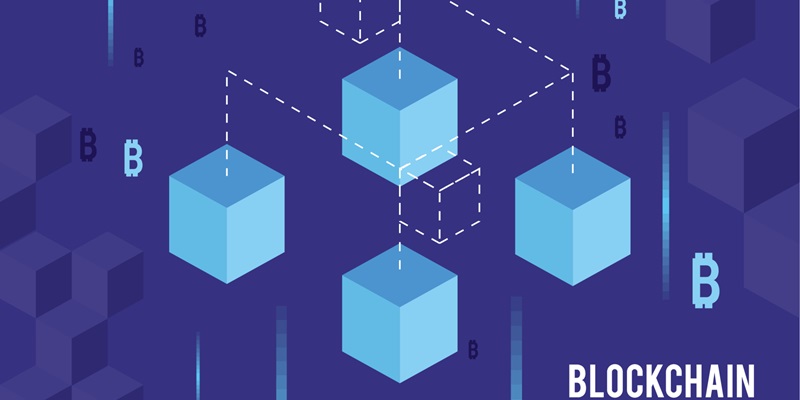Blockchain technology has emerged as a game-changer in the world of finance, offering a decentralized alternative to traditional centralized banking systems. In this article, we will explore the emergence of blockchain and its impact on the very foundations of financial infrastructure. By decentralizing financial transactions, blockchain not only mitigates risks associated with single points of failure but also enhances transparency and security.
Mitigation of Risks
One of the key advantages of blockchain is its ability to mitigate risks associated with a single point of failure. Unlike centralized banking systems that can be vulnerable to hacking or system failures, blockchain operates on a distributed network, reducing the likelihood of such incidents.
Improved Transparency and Security
Blockchain brings transparency and security to financial transactions. Every participant in the blockchain network has access to a shared, immutable ledger of transactions. This shared ledger provides transparency and traceability, making it virtually impossible to manipulate or alter transaction records.
Explanation of Shared, Immutable Ledger
In a blockchain network, every transaction is recorded on a shared, immutable ledger. This ledger is accessible to all participants, ensuring transparency and trust. Each transaction is encrypted and linked to the previous transaction, creating a chain of blocks that cannot be changed without consensus from the network.
Importance of Transparency and Traceability
The transparency and traceability provided by the shared ledger ensure that transactions can be audited and verified. This is particularly valuable in scenarios such as cross-border transactions or supply chain management, where transparency and accountability are crucial.
Direct Peer-to-Peer Transactions
One of the significant advantages of blockchain is the ability to conduct transactions directly between peers on the network. This eliminates the need for intermediaries, reducing costs and streamlining the processes involved in financial transactions.
Reduction in Settlement Time
Traditional financial transactions often involve multiple intermediaries, which can lead to delays in settlements. With blockchain, transactions can be settled directly between parties, reducing the time required for settlements and improving overall efficiency.
Definition and Functionality
Smart contracts are self-executing contracts written in code. They automatically execute predefined conditions when these conditions are met. Smart contracts eliminate the need for intermediaries in contract enforcement, making the process faster and more reliable.
Automation and Efficiency
Smart contracts automate a wide range of contractual obligations, such as payments, transfers, or compliance checks. By removing the need for manual execution, smart contracts enhance efficiency, reduce costs, and minimize the potential for human error.
Regulatory Uncertainties
The integration of blockchain technology into the financial infrastructure poses regulatory challenges. Policymakers must collaborate with industry stakeholders to establish a regulatory environment that fosters innovation while ensuring consumer protection.
Scalability Concerns
As blockchain technology gains traction, concerns about scalability arise, specifically regarding transaction processing speeds and network capacity. Innovative solutions are necessary to address these limitations and meet the growing demand for blockchain-based financial solutions.
Interoperability Issues
The integration of blockchain into existing financial systems requires addressing interoperability challenges. Efforts must be made to develop standards and protocols that allow seamless communication and data sharing between different blockchain networks.
Collaboration with Policymakers
To fully realize the potential of blockchain, industry stakeholders and policymakers must collaborate to establish a supportive regulatory environment. Balancing innovation with consumer protection is crucial to foster the adoption and integration of blockchain into global finance.
Partnerships and Industry Collaboration
Collaboration between different industry players is essential to address scalability and interoperability issues. Joint efforts and innovative solutions will pave the way for the seamless integration of blockchain into the fabric of global finance.
Improving Transaction Processing Speeds
To meet the growing demand for blockchain-based financial solutions, efforts should be made to enhance transaction processing speeds. Innovations such as sharding and layer 2 solutions are being explored to address scalability concerns.
Enhancing Network Capacity
As blockchain networks expand, increasing network capacity becomes crucial. Scaling solutions, such as improved consensus algorithms or the utilization of off-chain networks, can help address network capacity limitations.
Ongoing Collaborative Efforts
Ongoing collaboration and innovative solutions are paving the way for a future where blockchain seamlessly integrates into the fabric of global finance. Industry stakeholders, policymakers, and technology experts continue to work together to overcome challenges and drive progress.
Transformative Impact
The transformative potential of blockchain on financial infrastructure is immense. With decentralization, enhanced transparency, and streamlined transactions, blockchain has the power to revolutionize how we conduct financial transactions and manage financial assets.
Blockchain technology is reshaping the financial infrastructure by offering a decentralized alternative to centralized banking systems. The benefits of decentralization, improved transparency, and security provided by blockchain have the potential to change the way we conduct financial transactions. However, addressing challenges such as regulatory uncertainties and scalability concerns requires collaboration between industry stakeholders, policymakers, and technology experts. As ongoing collaborative efforts and innovative solutions emerge, we are moving closer to a future where blockchain seamlessly integrates into the fabric of global finance.

